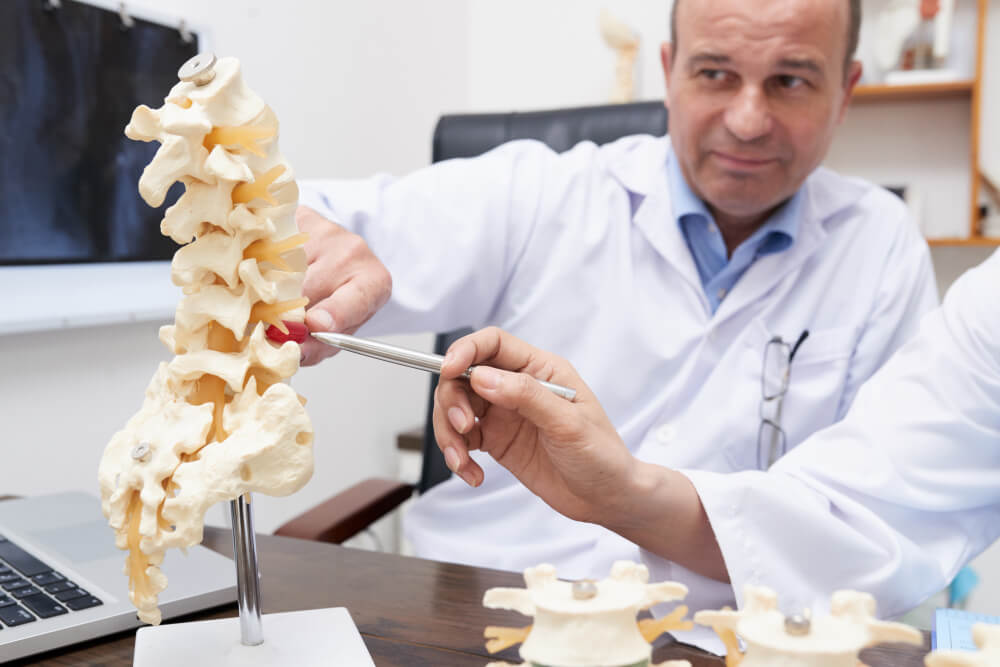Spine Specialists: Your Partner in Spinal Compression Fracture Recovery
A spinal compression fracture occurs when one or more of the vertebrae in the spine collapse, often due to osteoporosis or trauma. This condition can cause severe back pain, limited mobility, and other complications. Spine specialists, such as orthopedic surgeons and neurosurgeons, are experts in diagnosing and treating spinal compression fractures.
Understanding Spinal Compression Fractures
The spine is a complex structure composed of vertebrae, discs, and ligaments. A compression fracture occurs when one or more of the vertebrae weaken and collapse, often due to osteoporosis, which weakens the bones. Other causes of spinal compression fractures include trauma, such as falls or accidents, and certain medical conditions, such as cancer.
Symptoms of Spinal Compression Fracture
- Severe back pain, especially with movement or coughing
- Loss of height
- Kyphosis (hunchback posture)
- Neurological symptoms, such as numbness or weakness in the legs
The Role of Spine Specialists
Spine specialists play a crucial role in diagnosing and treating spinal compression fractures. They can:
- Conduct a Physical Examination Assess your pain, range of motion, and neurological function.
- Order Imaging Tests Use X-rays, CT scans, or MRI to visualize the spine and identify the extent of the fracture.
- Develop a Treatment Plan Create a personalized treatment plan tailored to your specific needs.
Non-Surgical Treatment Options
In many cases, non-surgical treatments can effectively manage spinal compression fractures. These treatments may include:
Conservative Care
- Rest: Limiting activities that aggravate pain.
- Pain Medication: Over-the-counter pain relievers or prescription pain medication to manage pain.
- Bracing: Wearing a back brace to support the spine and reduce pain.
- Physical Therapy: Exercises to strengthen the back muscles and improve posture.
Vertebroplasty
A minimally invasive procedure in which bone cement is injected into the fractured vertebra to stabilize it.
Kyphoplasty
A similar procedure to vertebroplasty, but it involves inflating a balloon within the fractured vertebra to create a cavity before injecting bone cement.
Surgical Treatment Options
In severe cases of spinal compression fracture, surgery may be necessary to stabilize the spine and relieve pain. Common surgical procedures include:
- Spinal Fusion Fusing two or more vertebrae together to create a solid bone block.
- Anterior Cervical Discectomy and Fusion A procedure to remove a herniated disc and fuse the adjacent vertebrae in the neck.
- Posterior Lumbar Fusion A procedure to fuse the vertebrae in the lower back.
Rehabilitation After Surgery
Rehabilitation is an important part of the recovery process after spinal surgery. Physical therapy can help you regain strength, flexibility, and range of motion.
- Physical Therapy Exercises Your physical therapist will prescribe exercises to help you recover.
- Gradual Return to Activity You will gradually increase your activity level over time, starting with gentle exercises and progressing to more challenging activities.
- Follow-up Appointments Regular follow-up appointments with your spine specialist are important to monitor your progress and address any concerns.
Preventing Spinal Compression Fractures
While it is not always possible to prevent spinal compression fractures, there are steps you can take to reduce your risk:
- Maintain Good Posture Good posture can help reduce stress on the spine.
- Regular Exercise Regular physical activity, such as walking, swimming, or yoga, can help strengthen the back muscles.
- Calcium and Vitamin D Consuming adequate calcium and vitamin D can help maintain bone health.
- Avoid Smoking Smoking can increase the risk of osteoporosis, which can lead to spinal compression fractures.
- Limit Alcohol Consumption Excessive alcohol consumption can weaken bones.
Conclusion
Spinal compression fractures can significantly impact your quality of life. By seeking prompt medical attention and following your doctor’s recommendations, you can manage your condition and improve your mobility. Spine specialists play a vital role in diagnosing and treating spinal compression fractures, helping you regain your health and well-being.
Reach out to our Spine specialists for Spinal compression fracture treatment (214) 949-8918 Or Visit us https://specialtycareclinics.com/


